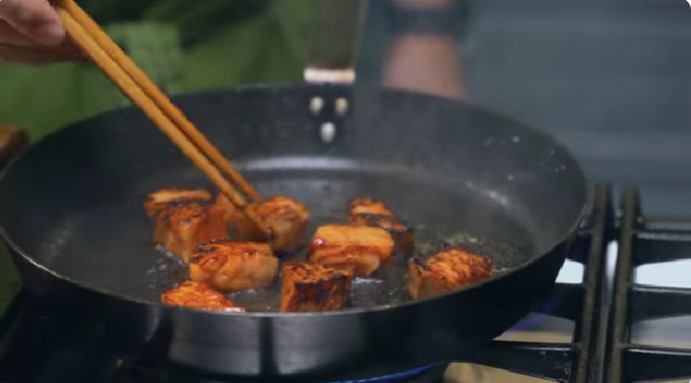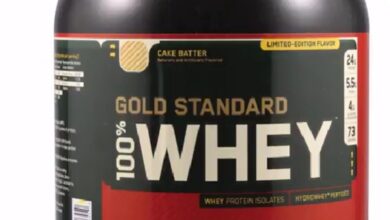Is Salmon Halal
Salmon is a popular and nutritious fish enjoyed worldwide, but for Muslims, the question of whether it is halal, or permissible to eat according to Islamic dietary laws, is crucial. In this article, we will explore the factors that determine the halal status of salmon, including Islamic guidelines, certification processes, and practical tips for ensuring your salmon is truly halal.
Introduction
Salmon is renowned for its rich flavor, versatility in cooking, and numerous health benefits. It is a staple in many diets, praised for its high omega-3 fatty acid content, which is beneficial for heart health. However, for Muslims adhering to halal dietary laws, it is essential to confirm that the salmon they consume is permissible. This involves understanding the Islamic principles regarding seafood, the specific criteria that make fish halal, and how to identify and purchase halal-certified salmon. Let’s delve into the details to ensure that the salmon on your plate aligns with your dietary and spiritual needs.

Understanding Halal Criteria for Seafood
General Islamic Guidelines
In Islam, the dietary laws outlined in the Quran and Hadith specify what is halal (permissible) and haram (forbidden). For seafood, the general rule is that fish with scales are considered halal. This broad guideline is based on interpretations of various Quranic verses and Hadiths. According to Surah al-Ma’idah (5:96), “Lawful to you is the game from the sea and its food as provision for you.” This verse is often cited to support the permissibility of consuming fish and other sea creatures.
Specific Criteria for Fish
For a fish to be considered halal, it must meet the following criteria:
- Scales: The fish must have visible scales. Salmon, which has small cycloid scales, meets this requirement.
- Origin: The fish should be a product of the sea, lakes, or rivers and should not be harmful or toxic.
- Processing: The method of capture and processing should not involve any haram substances or practices.
Halal Certification for Salmon
Halal certification is a process that ensures the food product meets all Islamic dietary laws. For salmon, the certification process involves several critical steps:
- Verification of Scales: Ensuring the fish has visible scales.
- Source Scrutiny: Checking whether the salmon is wild-caught or farmed. Wild-caught salmon is generally considered halal, while farmed salmon undergoes closer scrutiny to ensure the farming practices adhere to halal standards.
- Feed and Farming Conditions: Ensuring the feed used in farming does not contain haram substances like pork by-products.
- Processing and Slaughtering: For farmed salmon, the fish must be alive when slaughtered, and the name of Allah should be recited at the time of slaughter.
Recognized Halal Certification Bodies
Several organizations provide halal certification, including:
- Halal Food Authority (HFA)
- Islamic Food and Nutrition Council of America (IFANCA)
These bodies conduct rigorous inspections to ensure that the fish and its processing meet halal standards.
Practical Tips for Ensuring Halal Salmon
Check for Halal Certification
When buying salmon, look for halal certification labels from reputable certifying bodies. This label guarantees that the product has undergone thorough inspections and meets all halal requirements.
Verify the Source
Understand whether your salmon is wild-caught or farmed. Wild-caught salmon is generally halal without specific slaughtering requirements, while farmed salmon needs to adhere to strict halal farming and processing standards.
Examine Processing Methods
Ensure that the processing facilities follow halal practices, preventing cross-contamination with non-halal products and maintaining sanitary conditions throughout.
Inspect Ingredients
For processed salmon products like smoked salmon or canned salmon, check the ingredient list for any non-halal additives, such as alcohol or pork-derived ingredients.
Consult with Halal Authorities
If in doubt, consult with a trusted halal certifier or Islamic scholar to get precise guidance and assurance about the halal status of the salmon and its processing methods.
Frequently Asked Questions
What are the benefits of eating halal salmon?
Halal salmon is rich in omega-3 fatty acids, which are essential for heart health, reducing inflammation, and supporting brain function. It is also a good source of high-quality protein, vitamins, and minerals.
Can I find halal-certified salmon in regular supermarkets?
Yes, many supermarkets now carry halal-certified salmon. It’s often labeled as such, but it’s always a good idea to ask the store manager or check with the supplier if you have any doubts.
What is the shelf life of halal salmon?
The shelf life of halal salmon depends on how it’s stored. When kept in the refrigerator at 0-4 degrees Celsius, it can last up to a few days. For longer storage, you can freeze it, but it should be consumed within 3 months for the best quality.
Can halal salmon be eaten raw?
Yes, halal salmon can be eaten raw if it has been properly frozen and handled to eliminate parasites. It’s often used in dishes like sushi and sashimi.
How can I ensure the salmon I buy is truly halal?
Look for certification from a reputable halal certifying body. This ensures that the salmon has been processed and handled according to Islamic dietary laws.
Does farmed halal salmon taste different from wild halal salmon?
Yes, farmed and wild salmon can have different tastes and textures. Wild salmon tends to have a more robust flavor and firmer texture, while farmed salmon is usually milder and fattier.
Where can I buy halal salmon?
You can buy halal salmon at many grocery stores, specialty halal markets, and online retailers. Look for products labeled as halal or check with the store to confirm.
What does halal certification for salmon involve?
Halal certification for salmon involves ensuring that the fish is handled and processed according to Islamic dietary laws. This includes cleanliness, humane treatment, and proper handling throughout the supply chain.
Are there different types of halal salmon?
Yes, there are several types of halal salmon, including Atlantic salmon, Pacific salmon, and specific varieties like sockeye and king salmon. Each type has its unique flavor and texture.
How is halal salmon processed?
Halal salmon processing includes steps to ensure cleanliness and adherence to halal standards. This may involve specific methods of slaughtering and handling to maintain the fish’s halal status.
Can I cook halal salmon in different ways?
Absolutely. Halal salmon can be grilled, baked, poached, or even smoked. It’s a versatile fish that works well in various culinary preparations.
Is halal salmon more expensive than non-halal salmon?
The price of halal salmon can vary. It might be slightly more expensive due to the additional steps required for halal certification and processing, but prices are generally comparable to non-halal salmon.
How is the sustainability of halal salmon ensured?
Many halal salmon suppliers are committed to sustainable practices, ensuring that the fish is farmed or caught in ways that do not harm the environment. Certifications like MSC (Marine Stewardship Council) can indicate sustainable practices.
Does halal salmon contain any additives?
Halal salmon should be free from non-halal additives. However, always check the product labeling to ensure no unwanted preservatives or additives are present.
Can I feed halal salmon to my children?
Yes, halal salmon is a nutritious option for children. It’s a great source of essential nutrients like omega-3 fatty acids, which are important for growth and development.
Conclusion
Salmon, with its rich taste and numerous health benefits, is a popular choice for many. For Muslims, ensuring that salmon is halal involves checking for scales, understanding the source and processing methods, and looking for reputable halal certification. By following these guidelines, you can enjoy salmon confidently, knowing it aligns with your dietary and spiritual needs.
Read also: Is Caviar Halal





